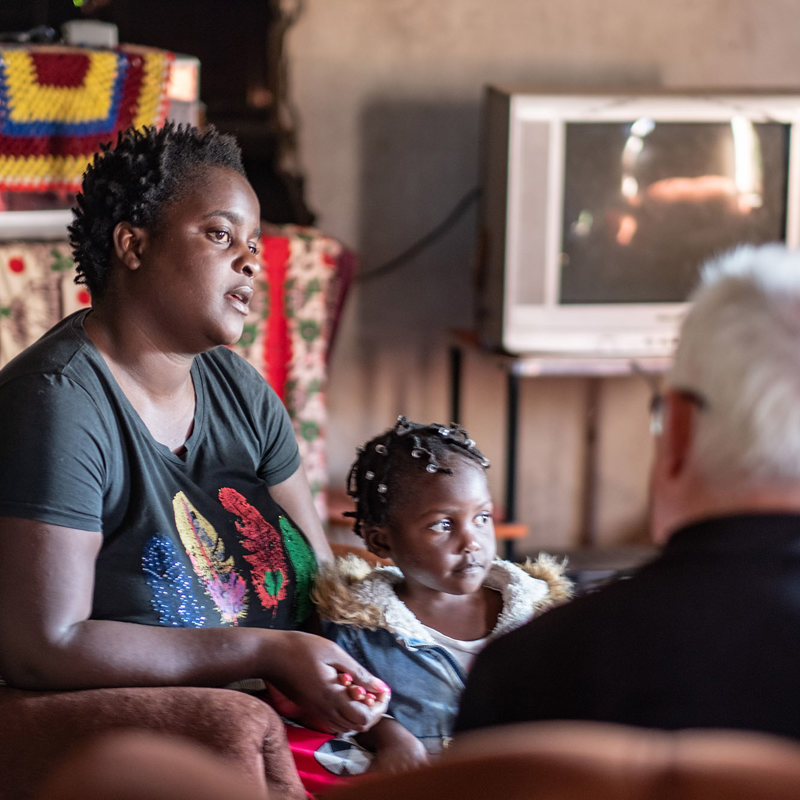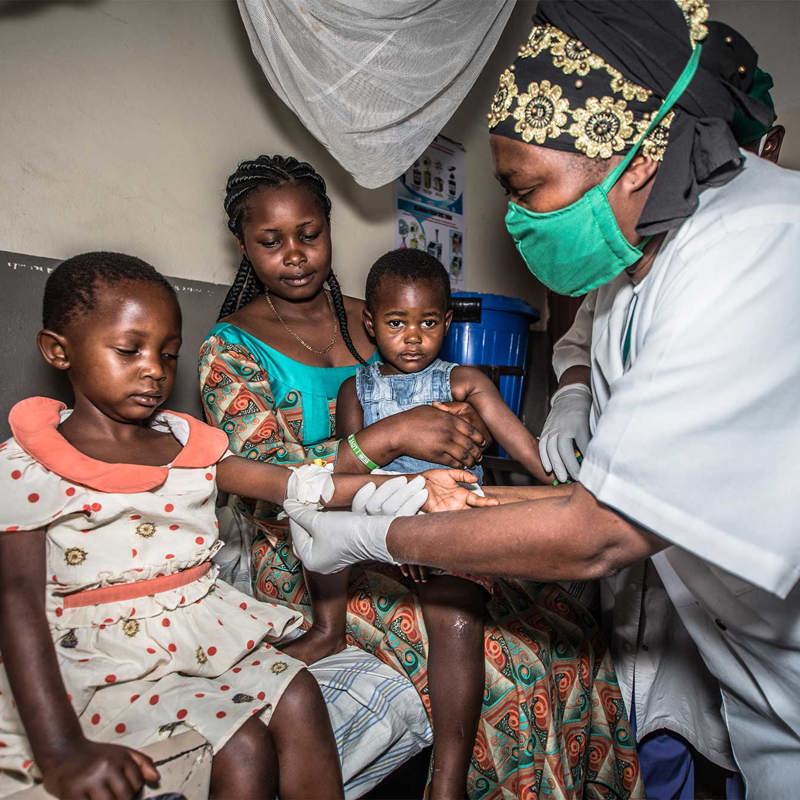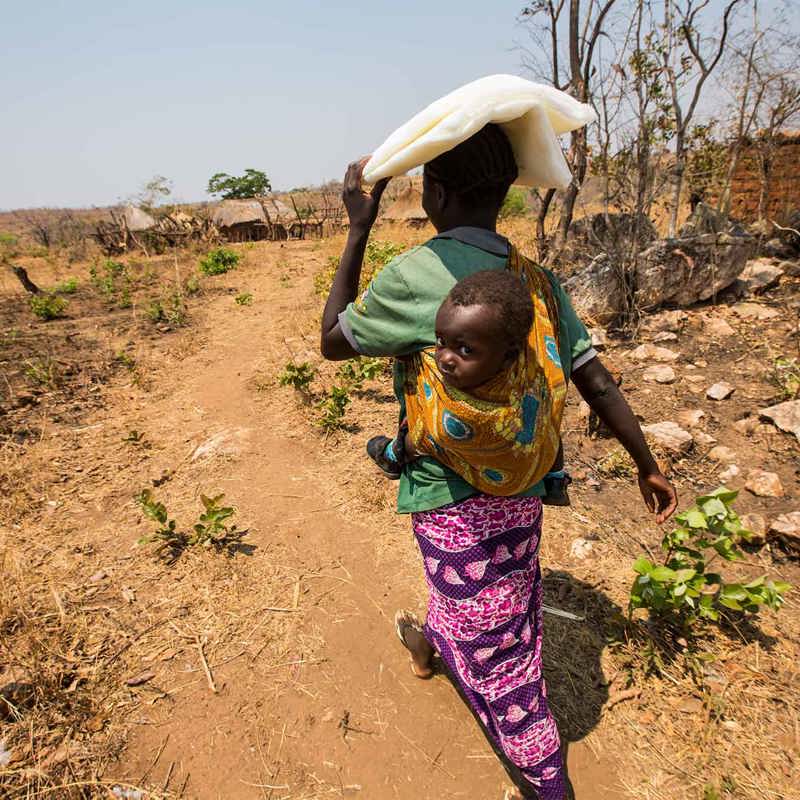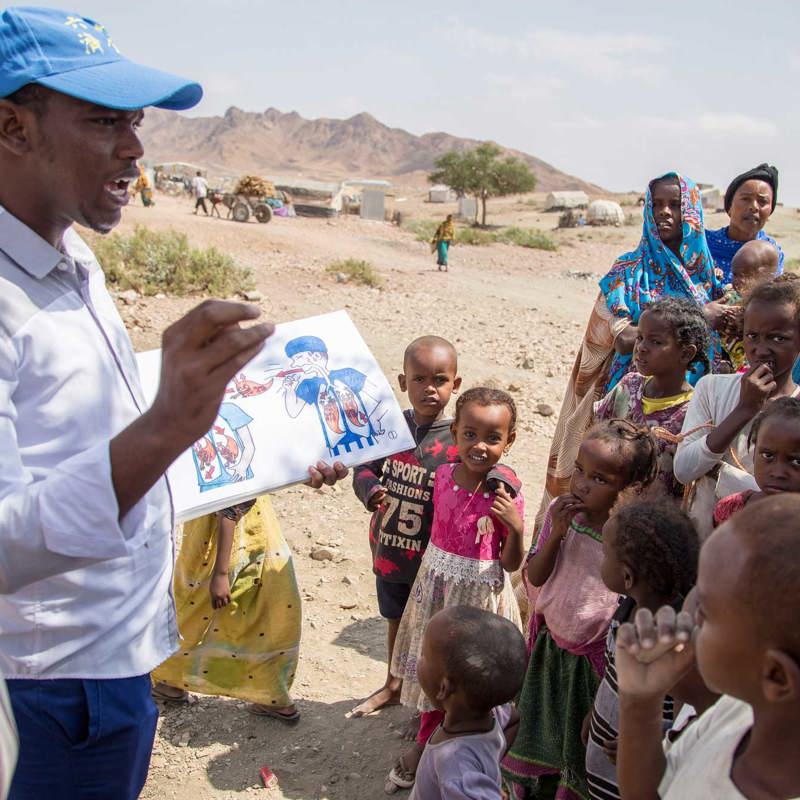-
 Le 25 mai 2023
Le 25 mai 2023La lutte d’une femme mozambicaine contre le paludisme – « le diable » qui a emporté la vie de son mari
Par Peter Sands, directeur exécutif du Fonds mondial
« Le paludisme, c’est le diable qui s’est invité chez moi », dit doucement Celina Tembe, en caressant la tête de sa fille de trois ans, Manuela Manuel. En août de l’année dernière, son mari alors âgé de 35 ans, Manuel Maxaieie, un opérateur de machin... -
 Le 10 mai 2023
Le 10 mai 2023Le paludisme : un défi de taille
Par Peter Sands, directeur exécutif du Fonds mondial
En février 2020, juste avant que le COVID-19 ne rende de tels voyages impossibles, je me suis rendu dans un village de la province du Kongo Central, en République démocratique du Congo. J’y ai rencontré François Mvueki, un agent de santé communautair... -
 Le 05 mai 2023
Le 05 mai 2023La menace d’un monde qui se réchauffe : la prochaine pandémie sera-t-elle le paludisme ?
Par Peter Sands, directeur exécutif du Fonds mondial
La prochaine crise sanitaire mondiale ne sera peut-être pas une pandémie causée par une nouvelle infection respiratoire. À la place, nous pourrions voir le changement climatique accentuer de façon spectaculaire la menace d’une maladie infectieuse exi... -
 Le 24 mars 2023
Le 24 mars 2023Fighting Tuberculosis Will Protect Us From the Next Global Health Threat
Par Eliud Wandwalo, Head of Tuberculosis, the Global Fund
One of the best ways to prepare for future pandemics is to turbocharge the fight against tuberculosis and stop considering it the “pandemic of the poor”, writes Dr. Eliud Wandwalo, head of TB at the Global Fund to Fight AIDS, Tuberculosis and Malaria... -
 Le 20 mars 2023
Le 20 mars 2023Tuberculosis: The Unseen Pandemic
Par Peter Sands, Executive Director, The Global Fund
TB will likely kill more people in low- and middle- income countries in 2023 than COVID-19. Yet it attracts a tiny fraction of the political attention and financial resources we’ve deployed against the new virus. -
 Le 01 mars 2023
Le 01 mars 2023En Côte d’Ivoire, des travailleuses du sexe s’allient avec la police pour combattre la stigmatisation et le VIH
Par Deborah Guehi
J’étais travailleuse du sexe depuis près de dix ans quand, en 2009, un client m’a encouragée à mobiliser les travailleuses du sexe de la ville pour que nous défendions nos droits. « L’union fait la force », m’a-t-il assuré. Je lui avais confié mon pr... -
 Le 09 décembre 2022
Le 09 décembre 2022Le travail inlassable d’un opérateur de numéro vert en Ukraine pour que la guerre ne mette pas un coup d’arrêt au traitement de la toxicomanie
Par Mikhailo Degtyarev, opérateur de la ligne d’assistance Hope and Trust
Le 24 février 2022, l’entrée en guerre s’est imposée sous la forme d’une violente explosion, soufflant toutes les fenêtres d’un bâtiment voisin. Les jours et les semaines qui ont suivi ont été irréels. -
 Le 01 décembre 2022
Le 01 décembre 2022La meilleure façon de se préparer à la prochaine pandémie n’est pas celle que vous croyez
Par Peter Sands et Winnie Byanyima
La lutte contre le VIH a besoin d’un nouveau souffle. Comme nous le craignions à l’apparition des premiers cas de COVID-19, la pandémie a eu des effets dévastateurs sur les progrès réalisés dans la lutte contre le VIH et le sida. Mais déjà avant le C... -
 Le 30 novembre 2022
Le 30 novembre 2022Journée mondiale de lutte contre le sida : comment sommes-nous censées protéger nos bébés ?
Par Olena Stryzhak, présidente de l’organisation ukrainienne Positive Women
The importance of breastfeeding has been established as essential to a baby’s development for centuries; but what if you’re faced with the problem of needing to breastfeed your child while potentially passing on a disease? This is the reality for man... -
 Le 30 novembre 2022
Le 30 novembre 2022Nous disposons d’outils pour prévenir le VIH – assurons-nous qu’ils atteignent ceux qui en ont le plus besoin
Par Susie McLean, conseillère principale, Prévention du VIH, le Fonds mondial
As we prepare for the next Global Fund funding cycle, we are working with programmers, researchers and advocates to adapt our HIV prevention investments to leverage new opportunities and to improve choices for people who need HIV prevention most.